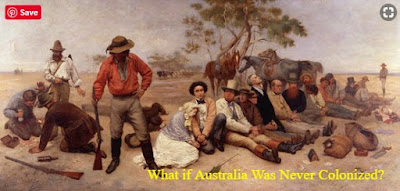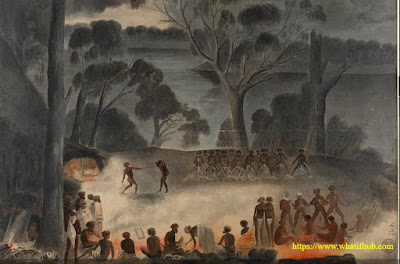
An Alternate history: What if Australia Was Never Colonized?Australia never gets enough love on this website. Always overlooked by its bigger and more essential continent cousins. But Australian colonization is one of the most important topics in the present world.
What if Australia Was Never Colonized?
 |
| What if Australia Was Never Colonized - whatifhub.com |
SO, Maybe it was the short amount of documented history or the dangerous wildlife that terrifies me. But for some reason, I haven't done an alternate history article for the land down under. So that's precisely why we're focusing on it in this scenario.
When we think of Australia, it's tough to imagine the land not being controlled by the British. Even though geographically, they are not close to each other at all.
Australian Colonization
 |
| What if Australia Was Never Colonized - whatifhub.com |
So how different would this land be, if Australia was never colonized? And that's the question we're asking in this article, What if the British never settled the continent as they did in our timeline?
Here is a couple of out of the many possibilities In this alternate timeline, the aboriginals would have the control. The native population Pre-European contact has been estimated to be around 750,000 to 1.5 million people.
There was no normal aboriginal society, as each tribe had it's own distinct culture and language. Most of the population inhabited the Eastern coast.
Similar to the density of Australia today, There are two different scenarios. I would want to focus on for this alternate continent as there are many ways.
Australia was invaded not colonized
 |
| What if Australia Was Never Colonized - whatifhub.com |
This timeline could go to Australia is controlled by the aborigines. Many factors when into basically dooming Australia's natives from ever forming civilization.
Yet the main reason was Australia's lack of successful crops or animals. While the Old World had wheat and cows.
The Americas had corn, and llamas Australia barely had any fauna which can make civilization a reasonable option.
Even trying to build a small kingdom or uniting tribes into larger settlements is practically out of the question. If the European colonists virtually ignored Australia. The Aborigines would most likely continue as they did for hundreds of thousands of years.
Eventually, they could shift away from their hunter, gatherer lifestyles and adapt technologies from other continents. It's the most unrealistic of the scenarios.
The last thing you'd imagine western powers doing is to avoid a massive chunk of land, just because tribes were on it Aboriginals don't die from diseases.
Just as in America, the Old World diseases wiped out around 90% of the aboriginal people. Some areas, once densely populated, were let abandoned by the time.
what would Australia be like without colonization
 |
| What if Australia Was Never Colonized - whatifhub.com |
The British got there, If the natives were somehow immune, Australia could share a similar fate to Africa. Instead of merely replacing the aboriginals the Europeans invest money in establishing puppet leaders and ruling over the local ethnic groups.
Different countries such as the Netherlands and Britain could split the continent up Dividing the natives and teaching them European language. Australia would still be a colony but have a tiny European minority, who control over the aboriginals.
You can draw your own conclusions to how the treatment would be.
what would have happened if Australia was colonized
 |
| What if Australia Was Never Colonized - whatifhub.com |
With modern medicine being introduced, the population of natives would have boomed alongside it. Any tensions which would be between tribes but eventually just as Africa did in our timeline.
the new artificial nations ruled for centuries by Europe, would bid for independence In the 21st century.
We could see an Australia split between many different states. Could they prosper? Would they fail? It would depend on the alternate history of New Australia.
What is your scenario on what could've happened? Tell us in the comments.
* This article was originally published here






